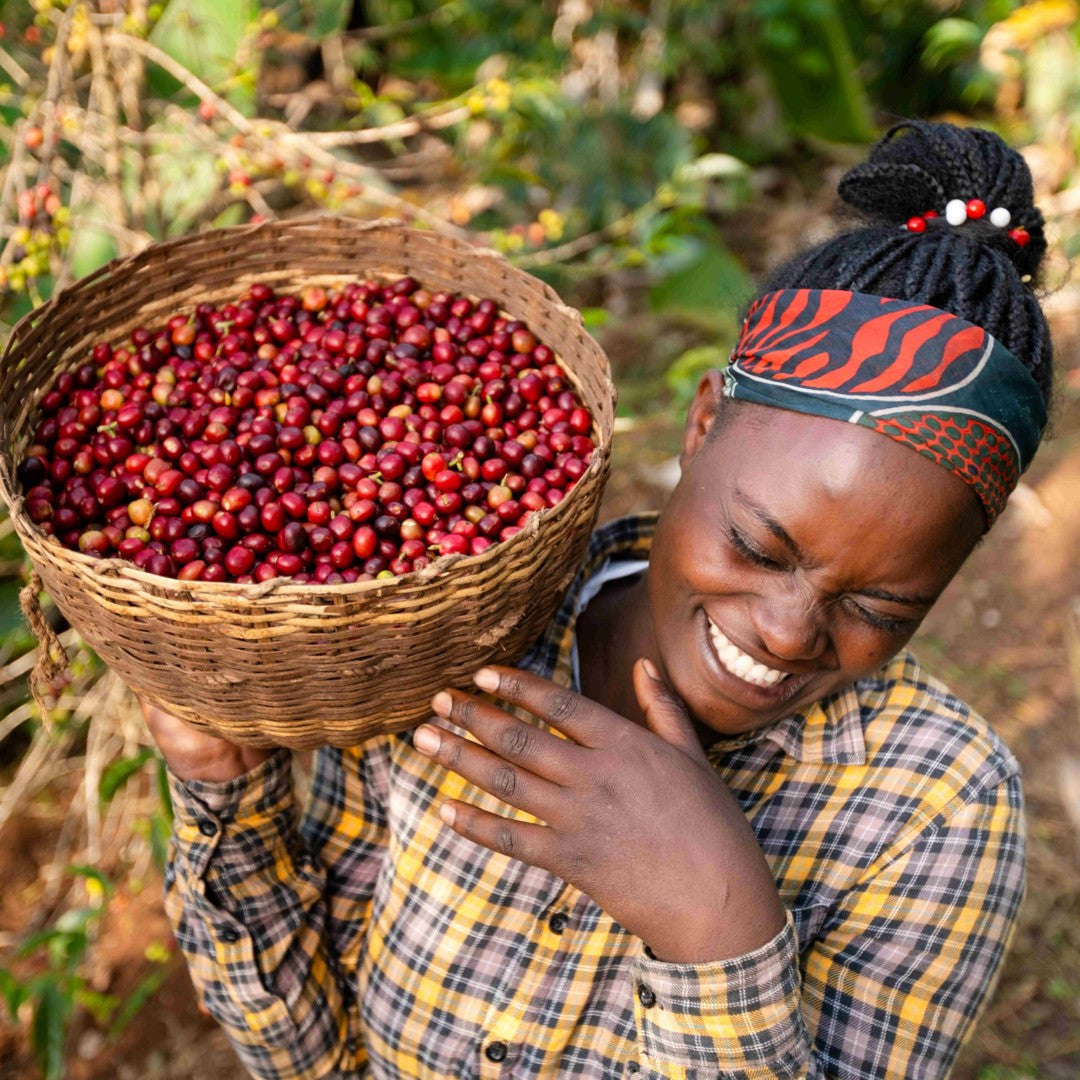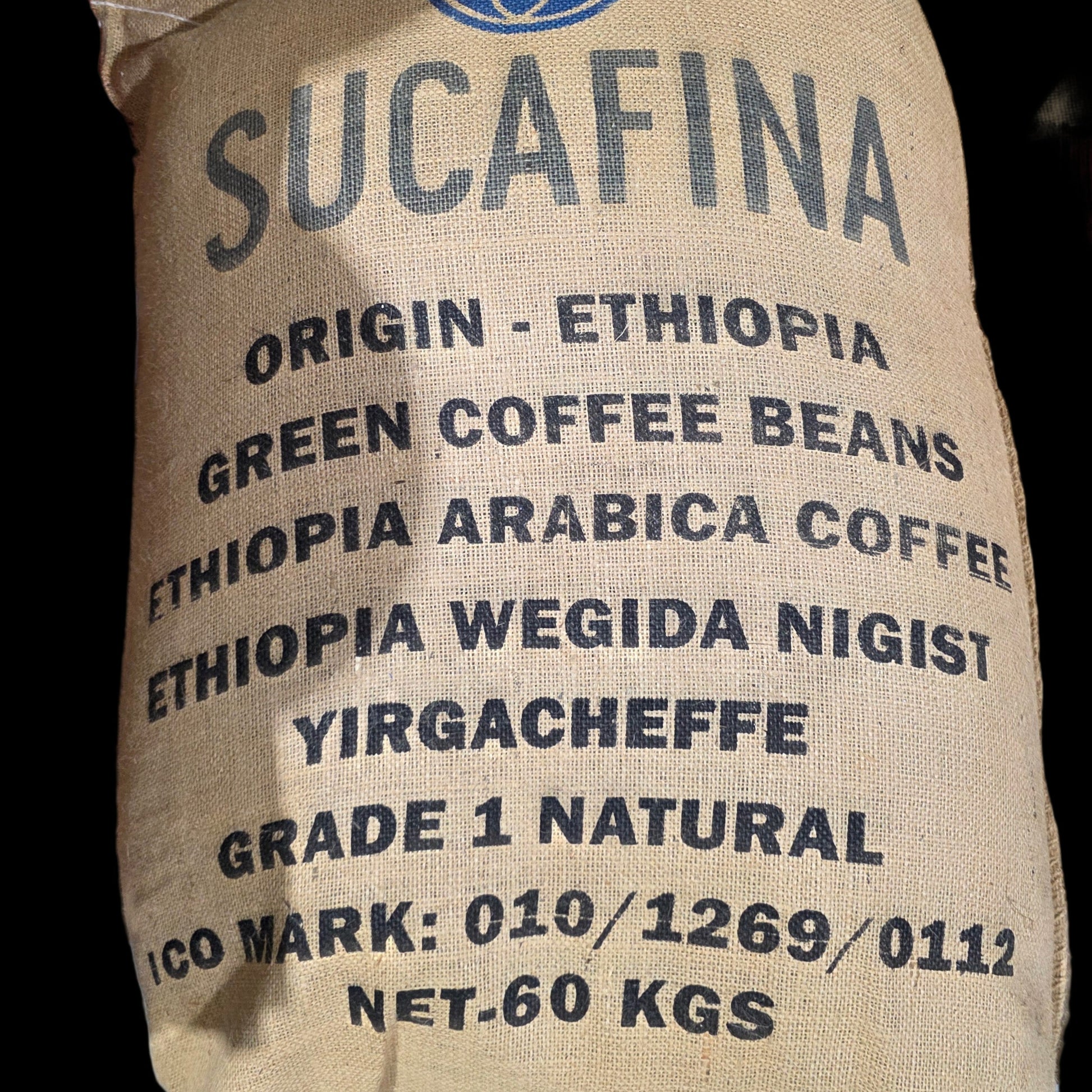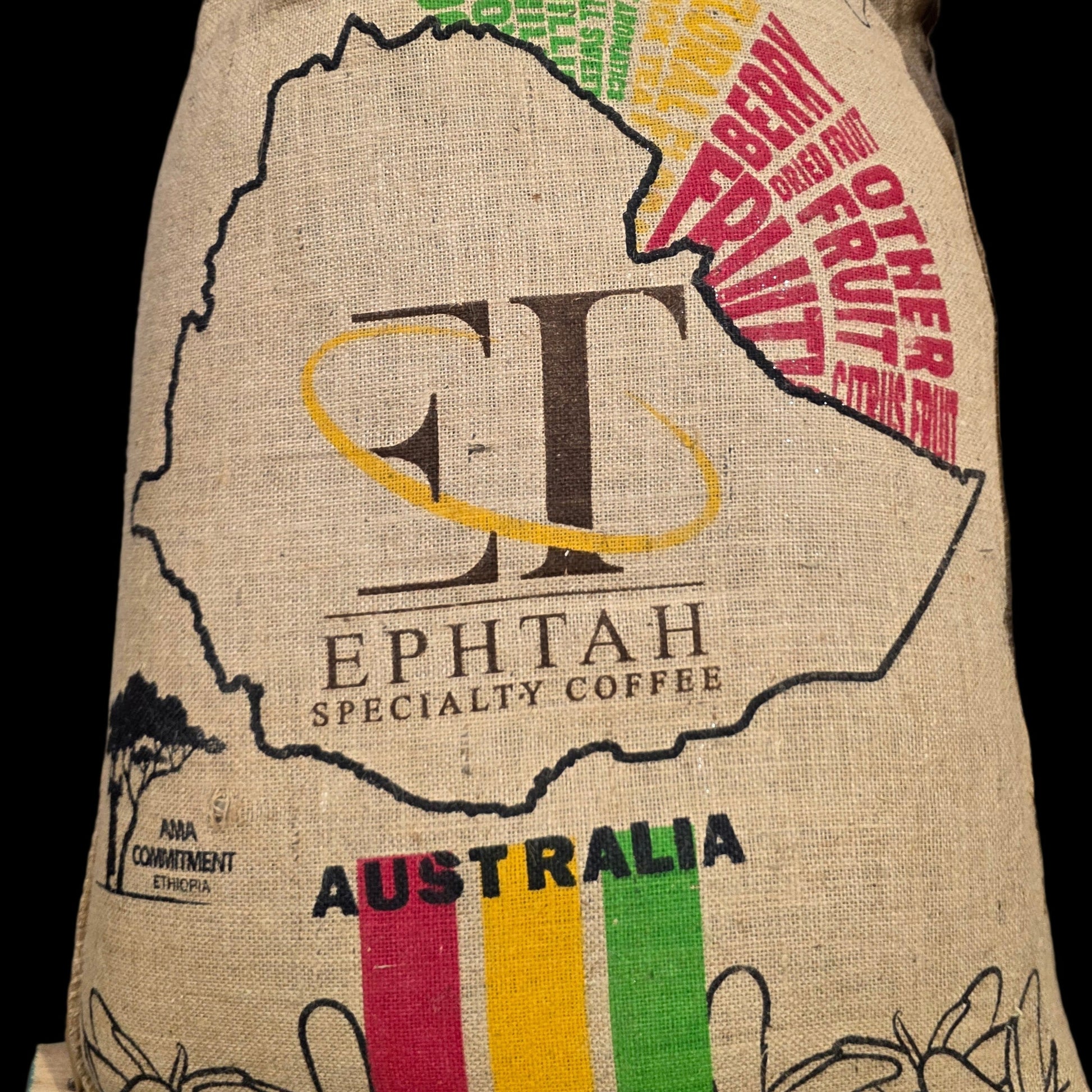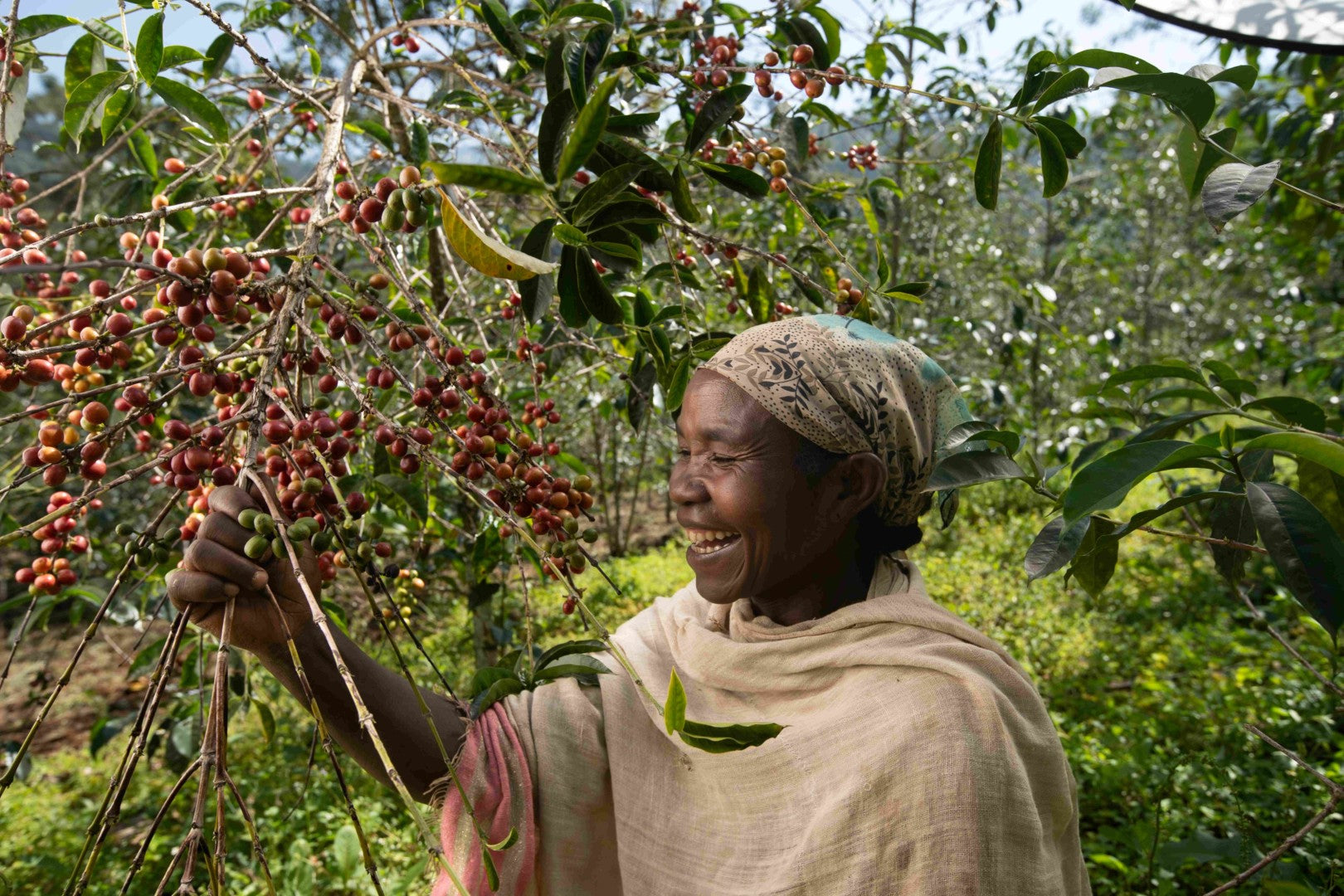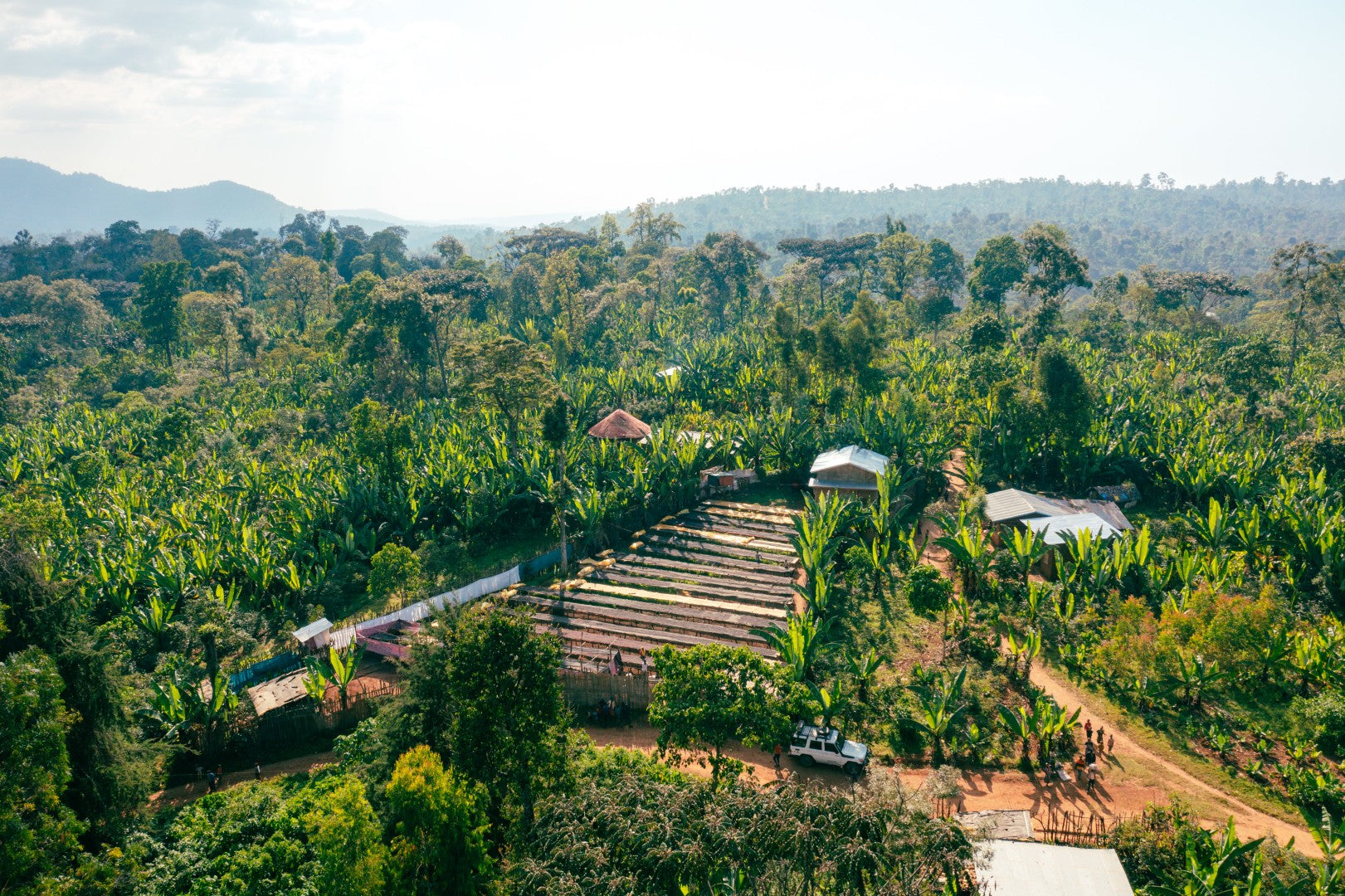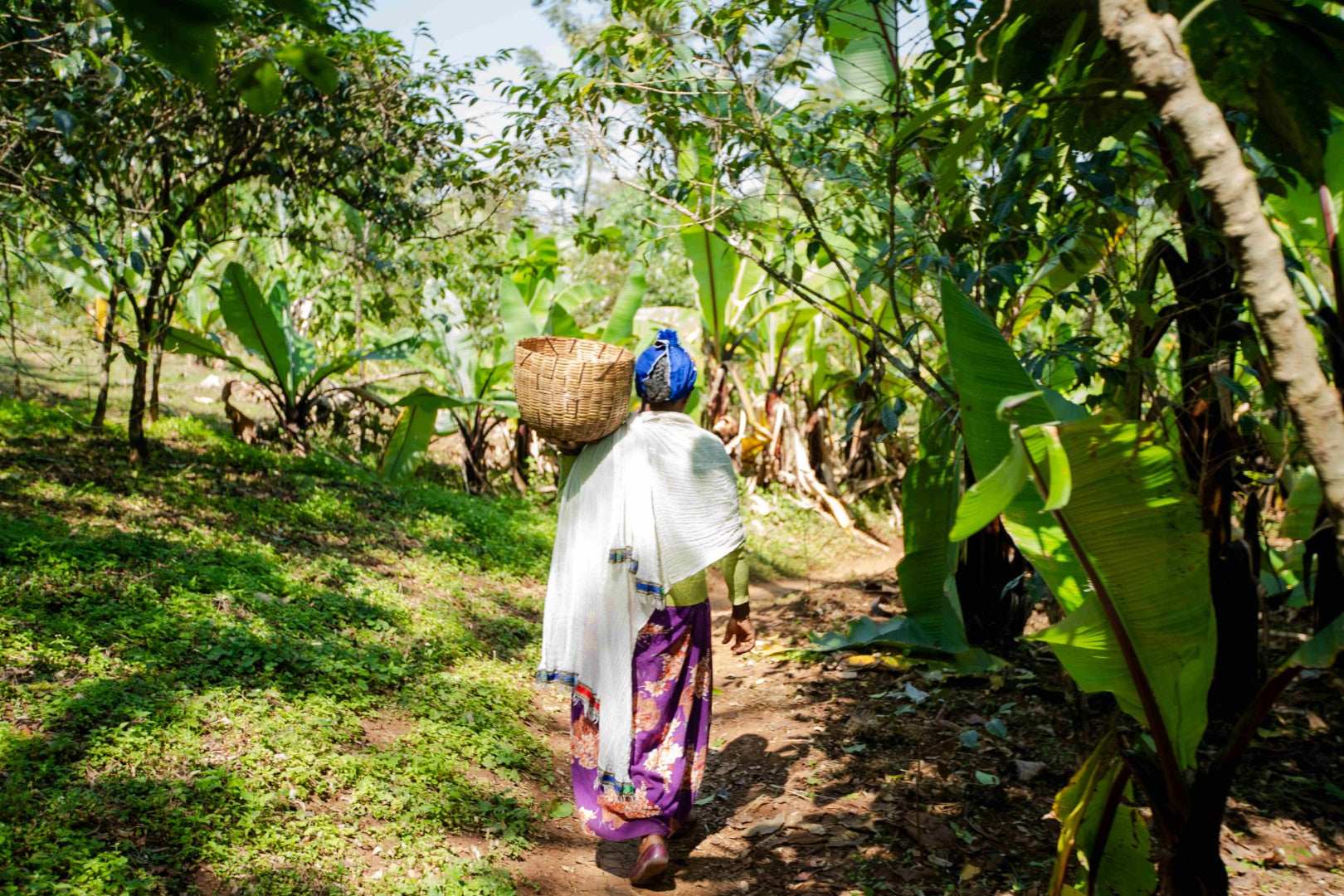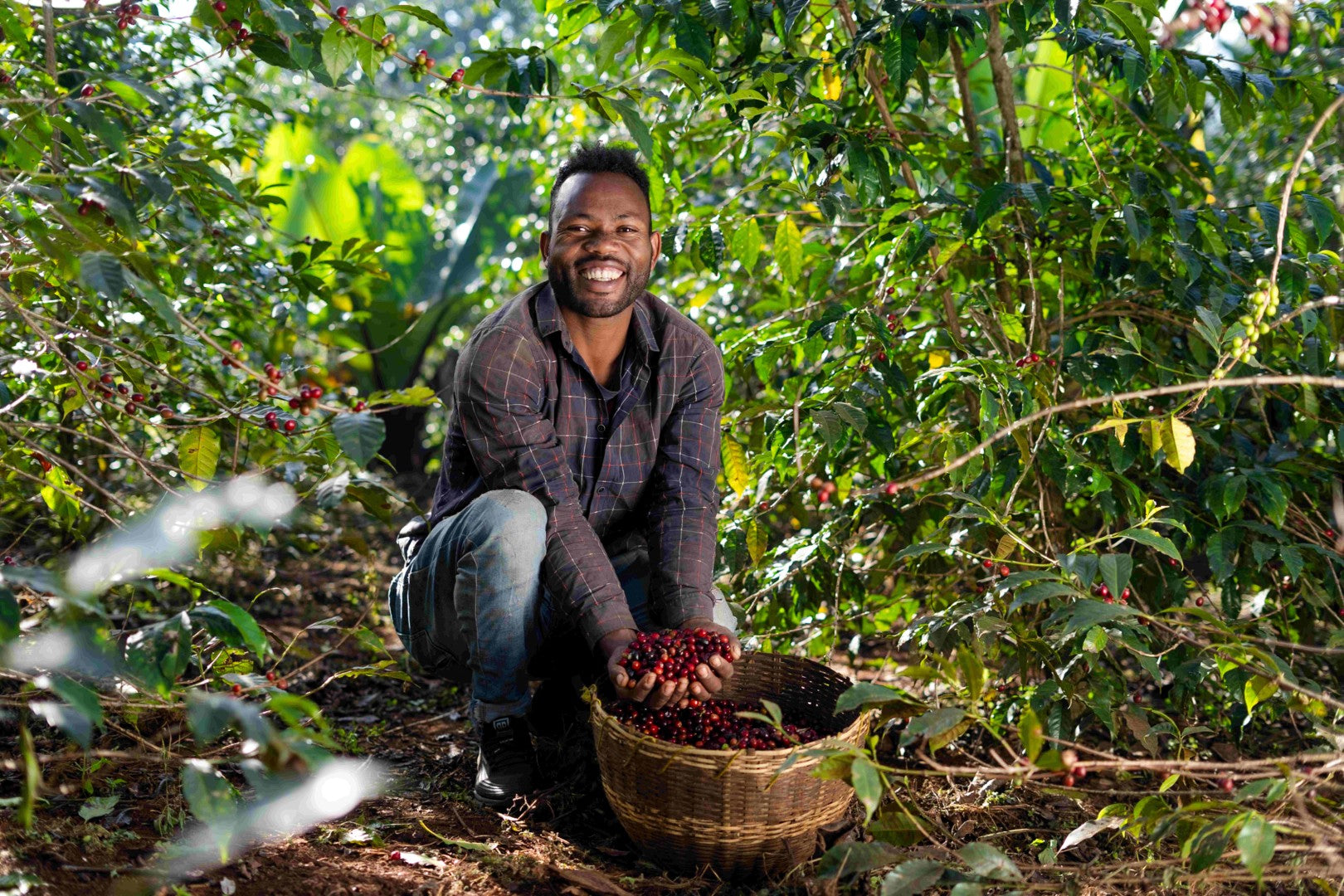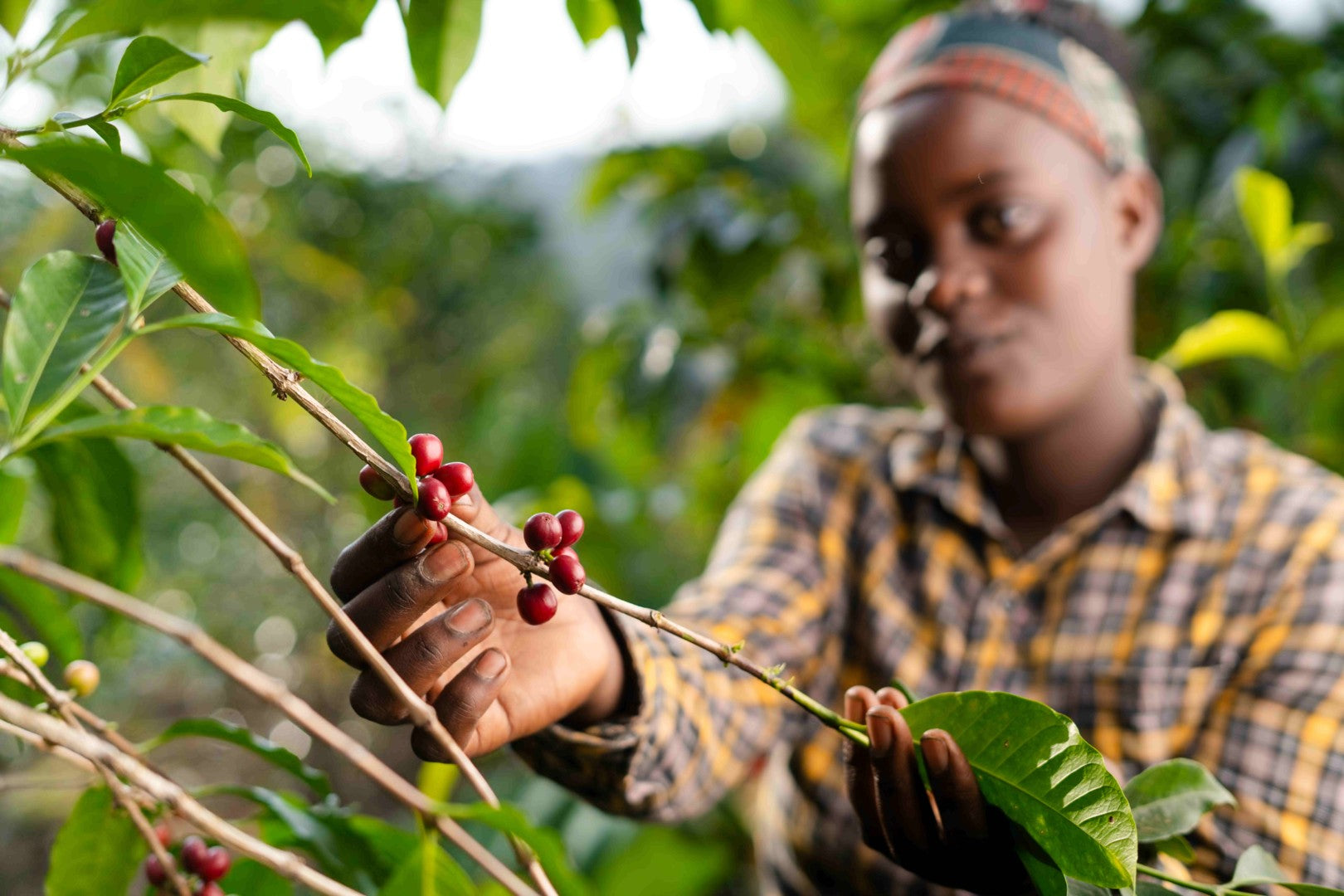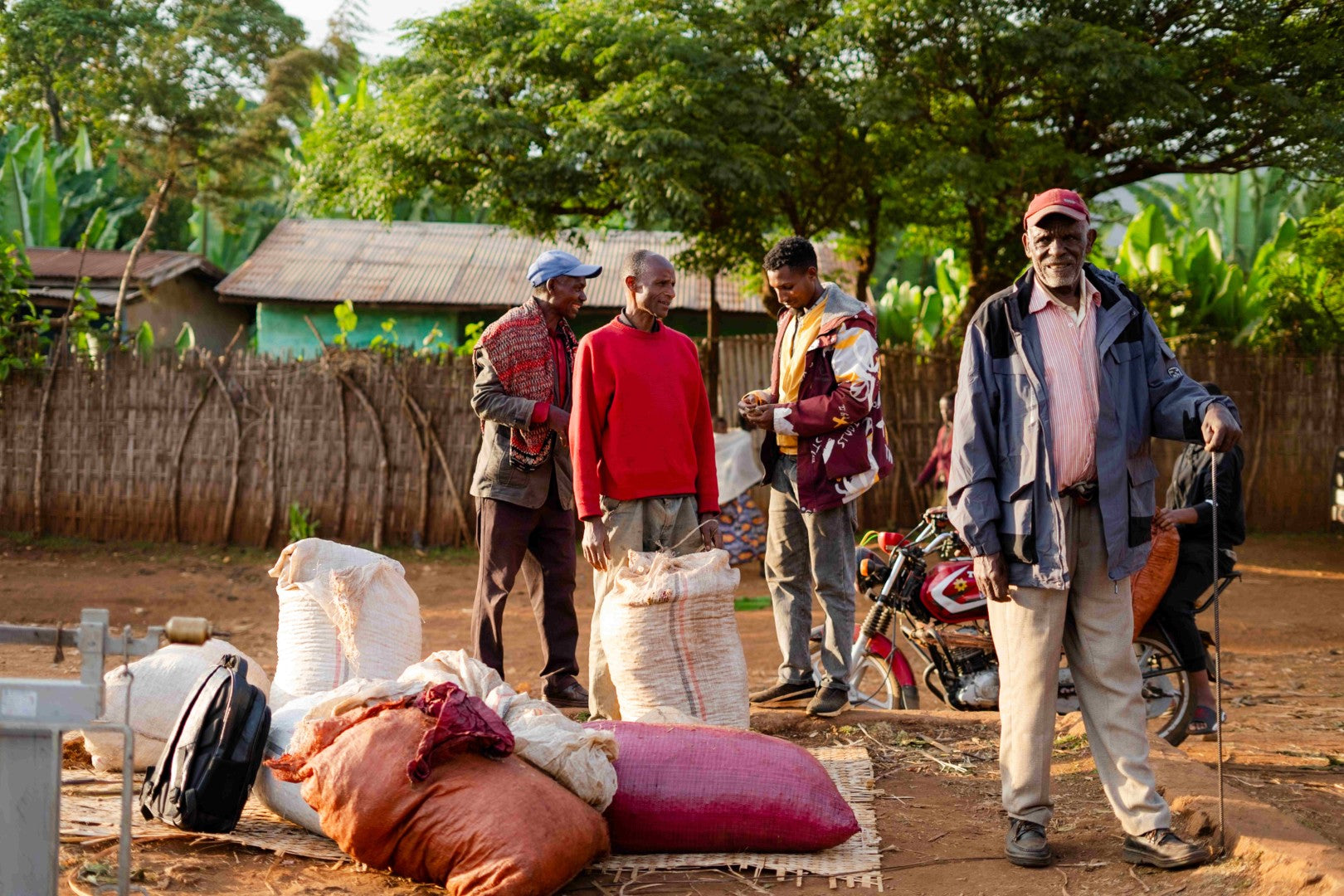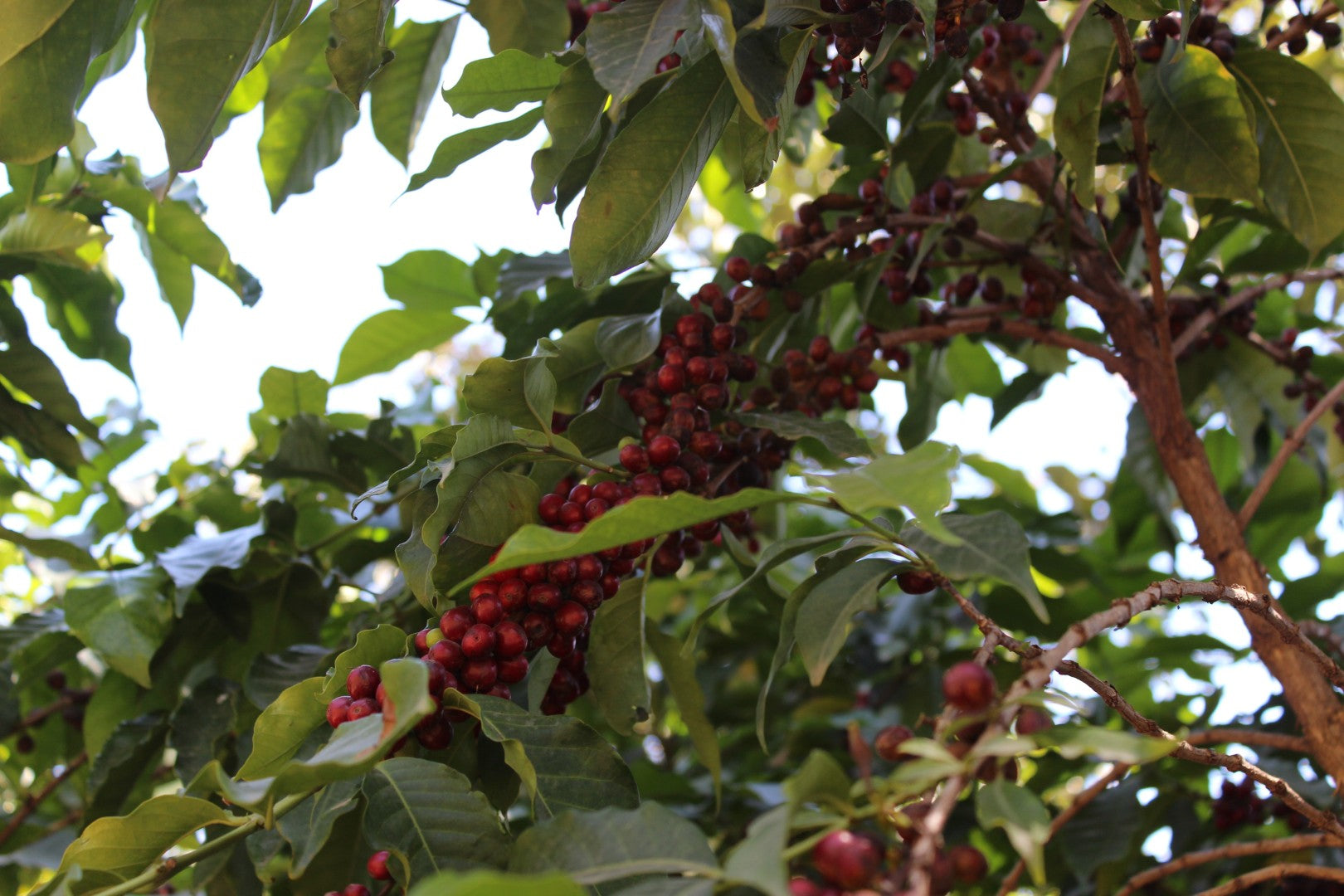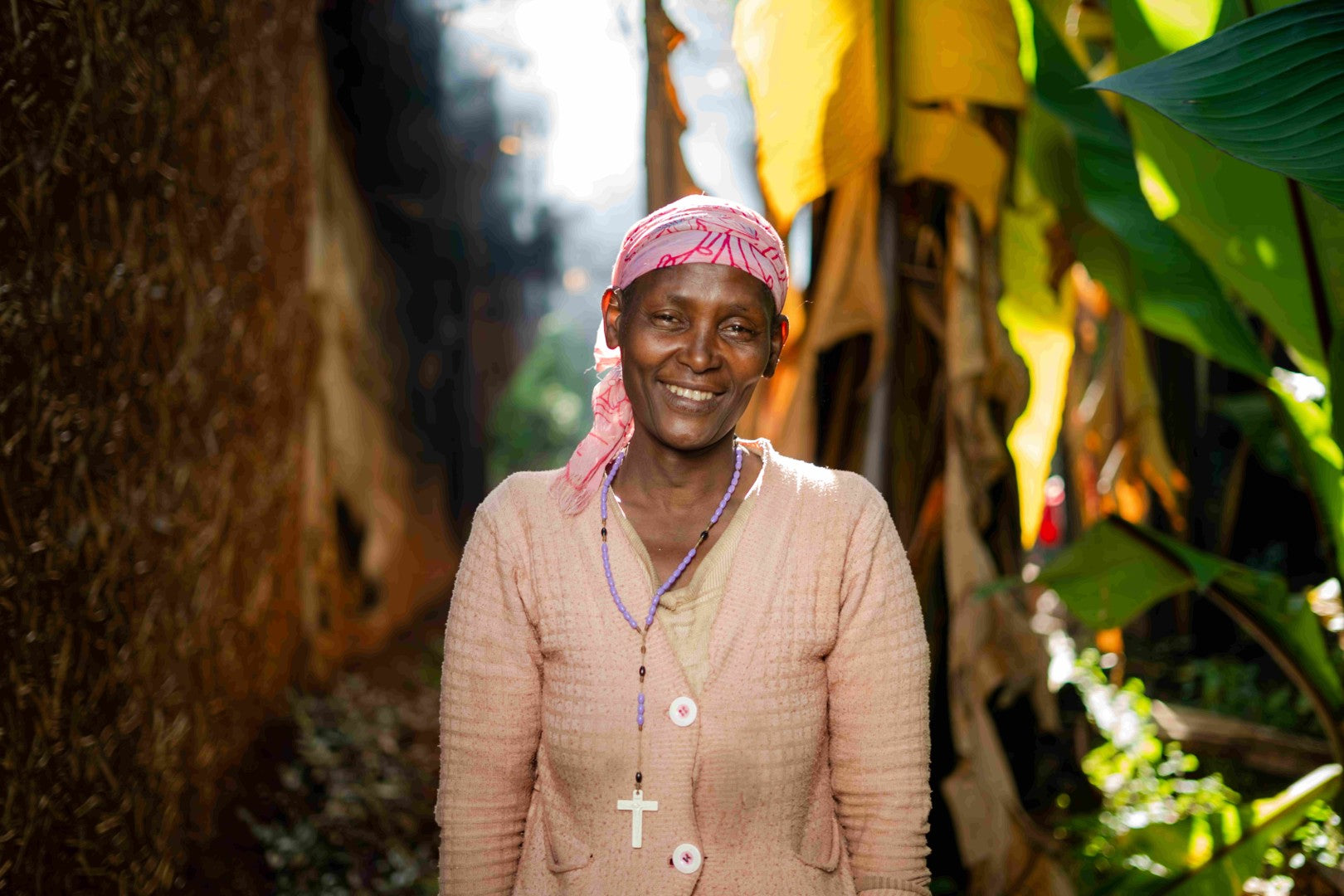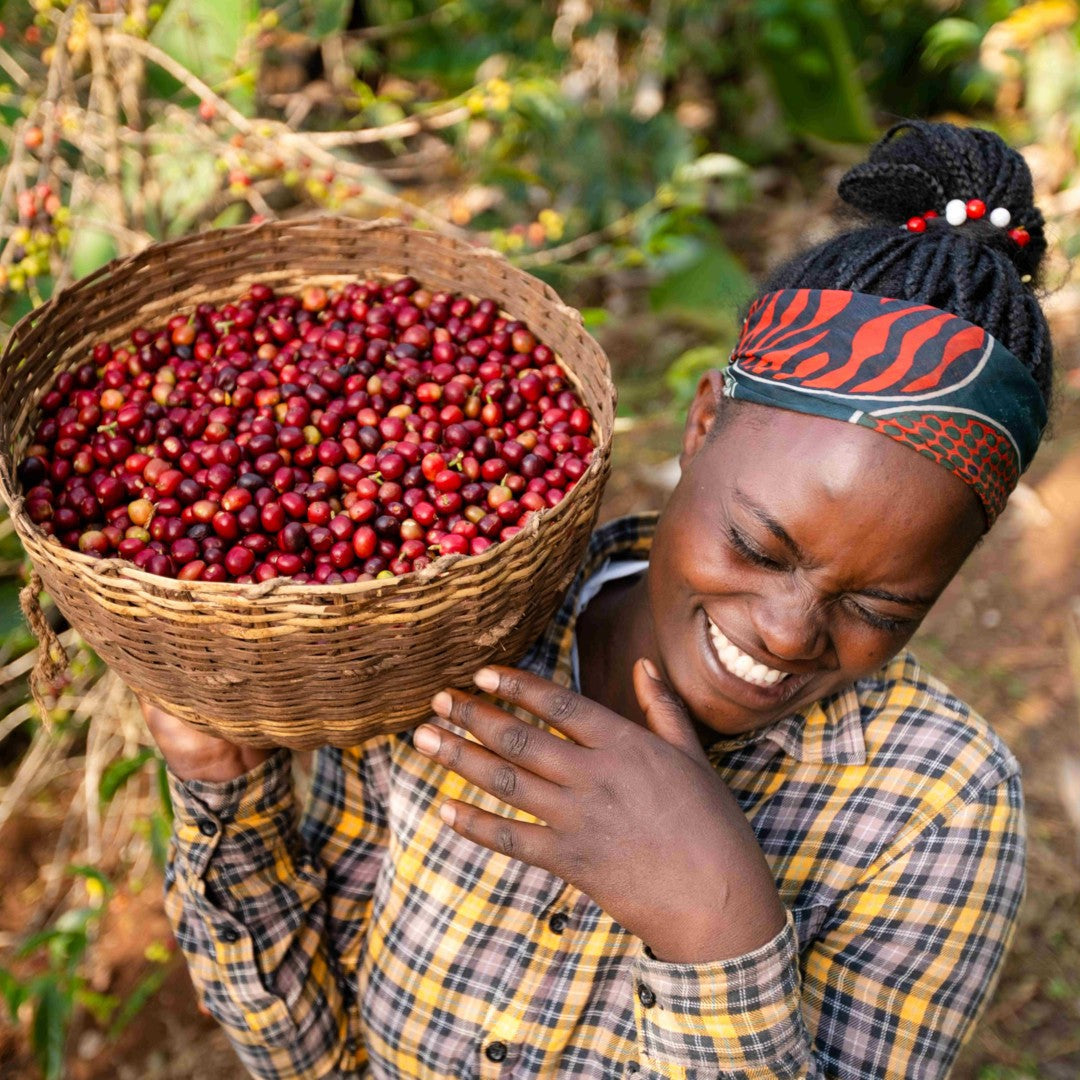
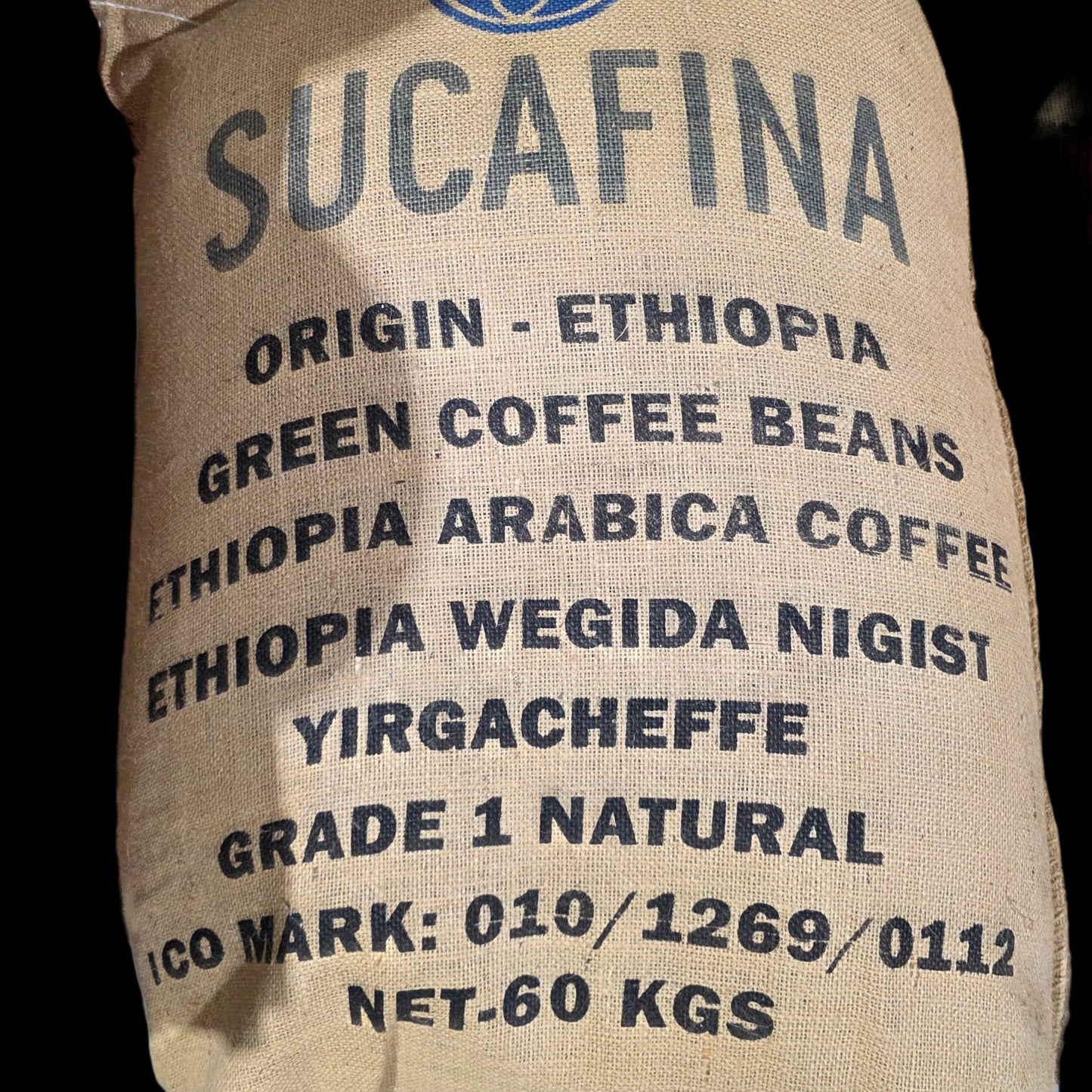
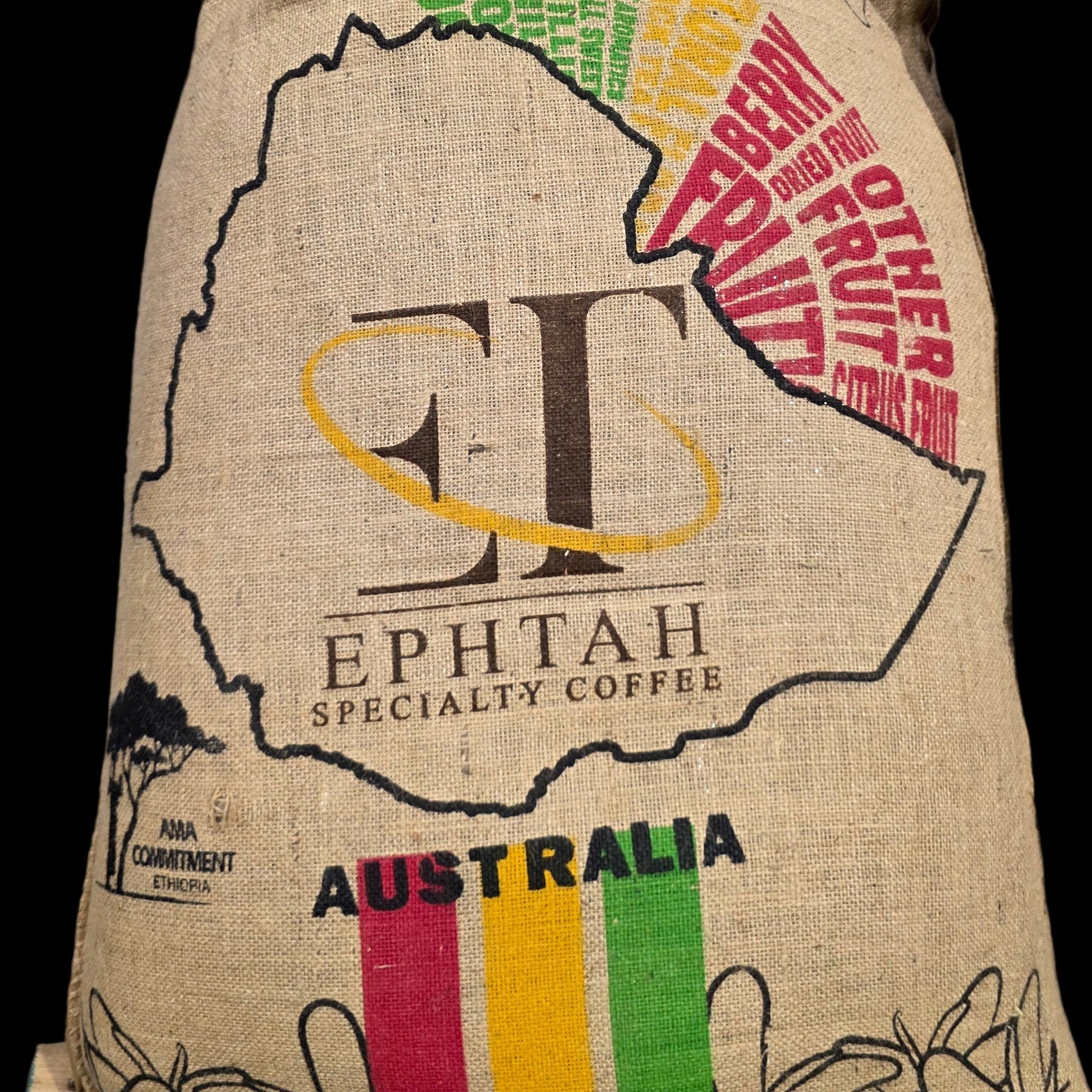
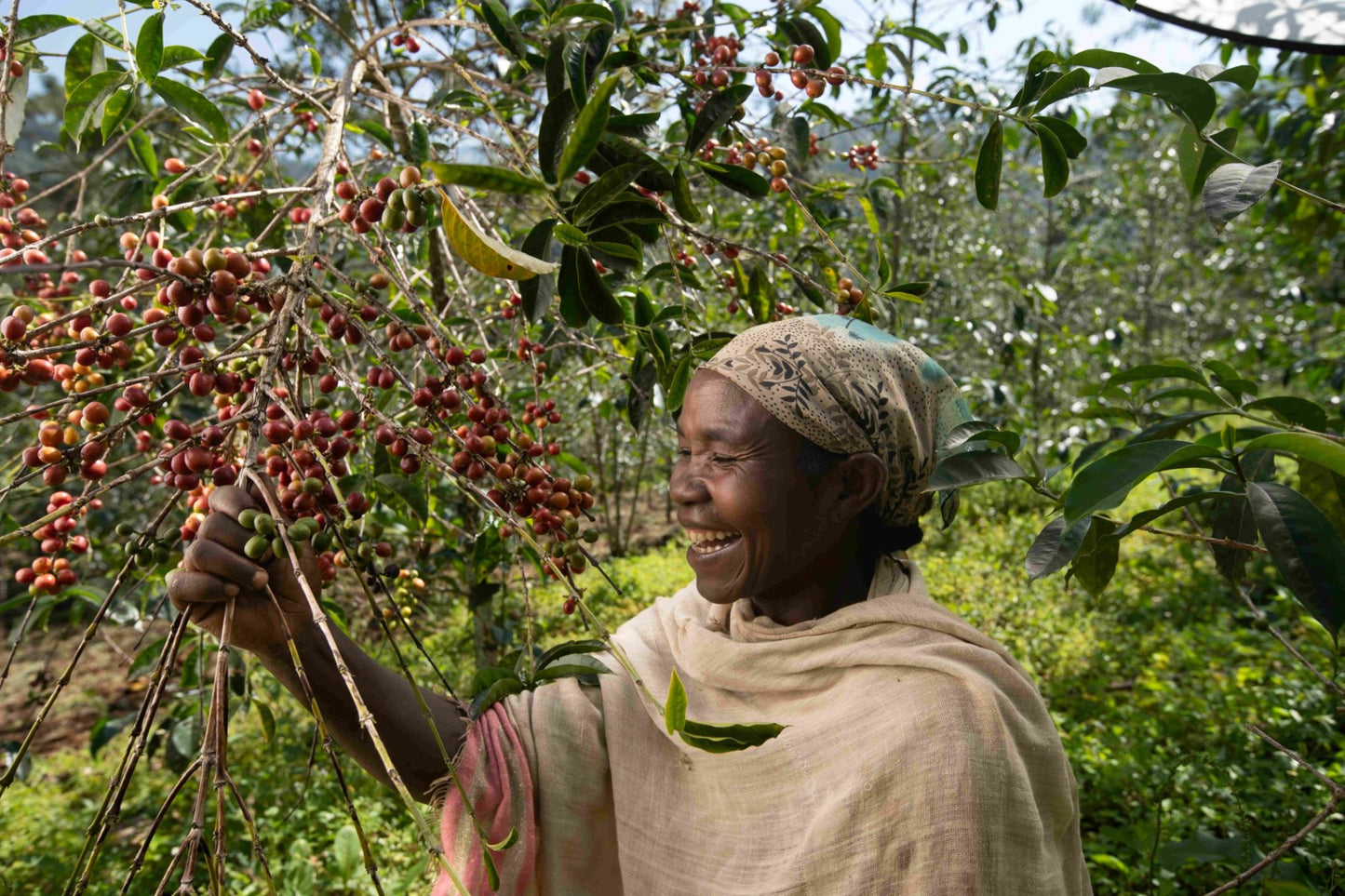
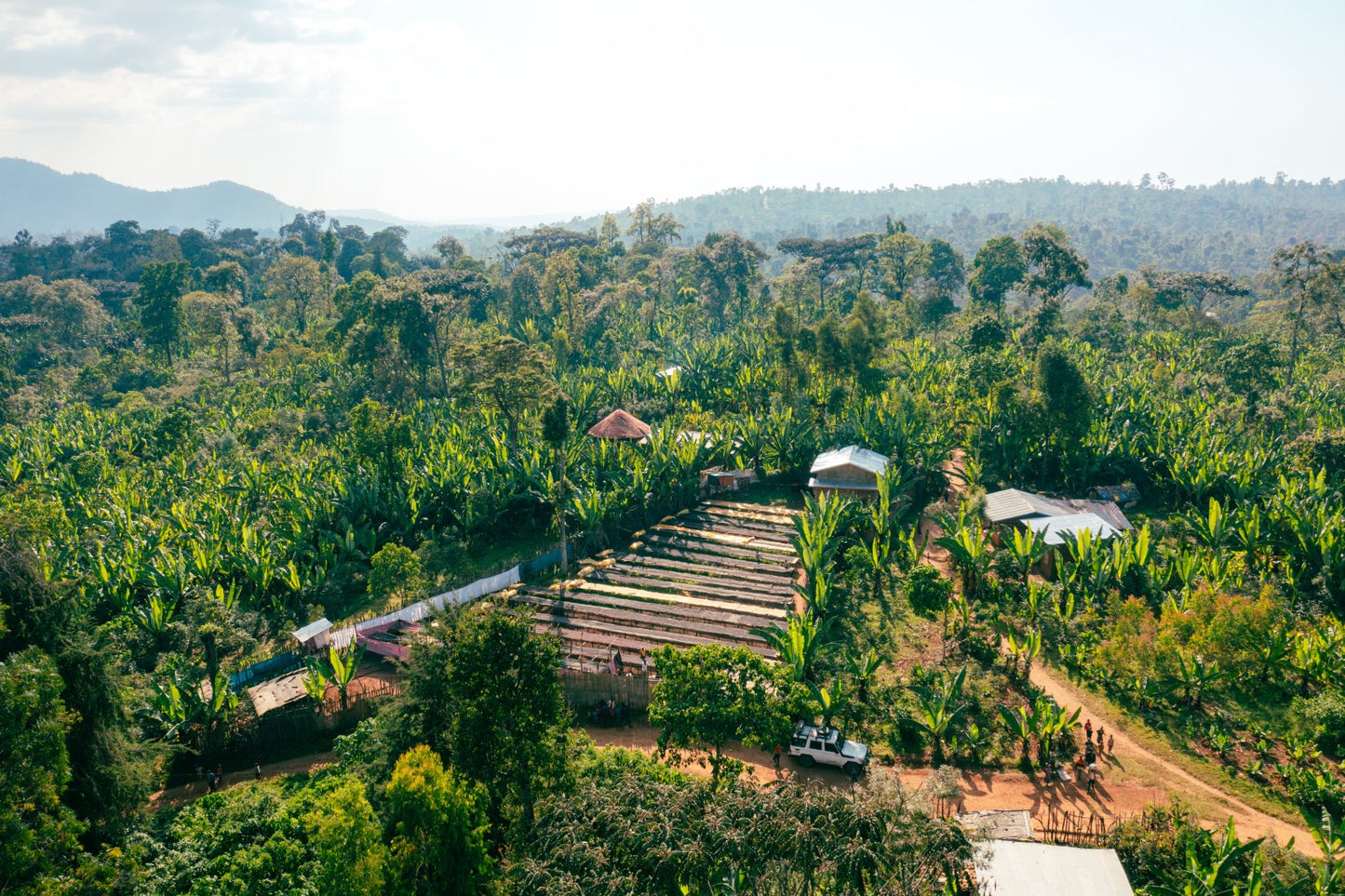
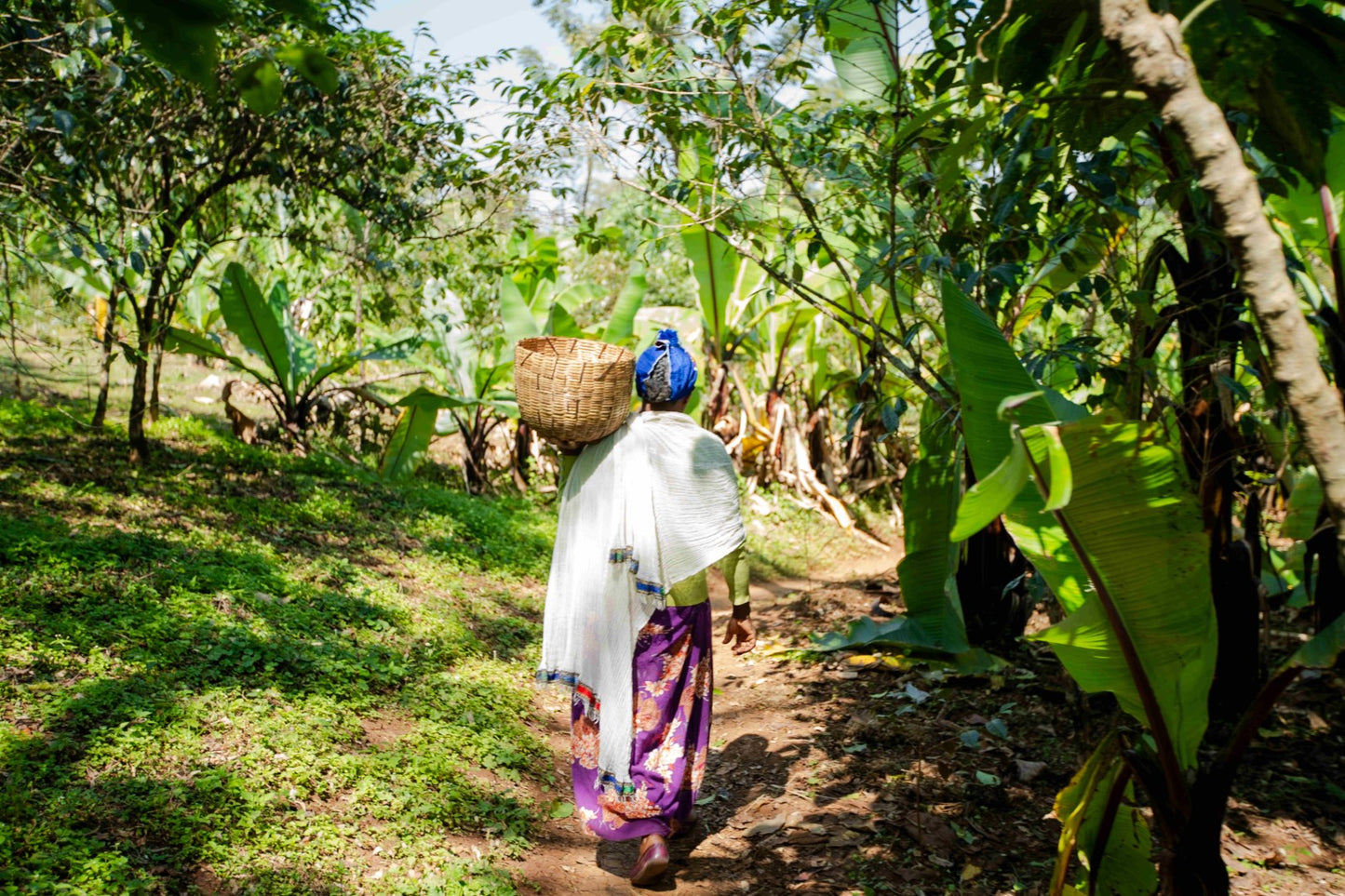
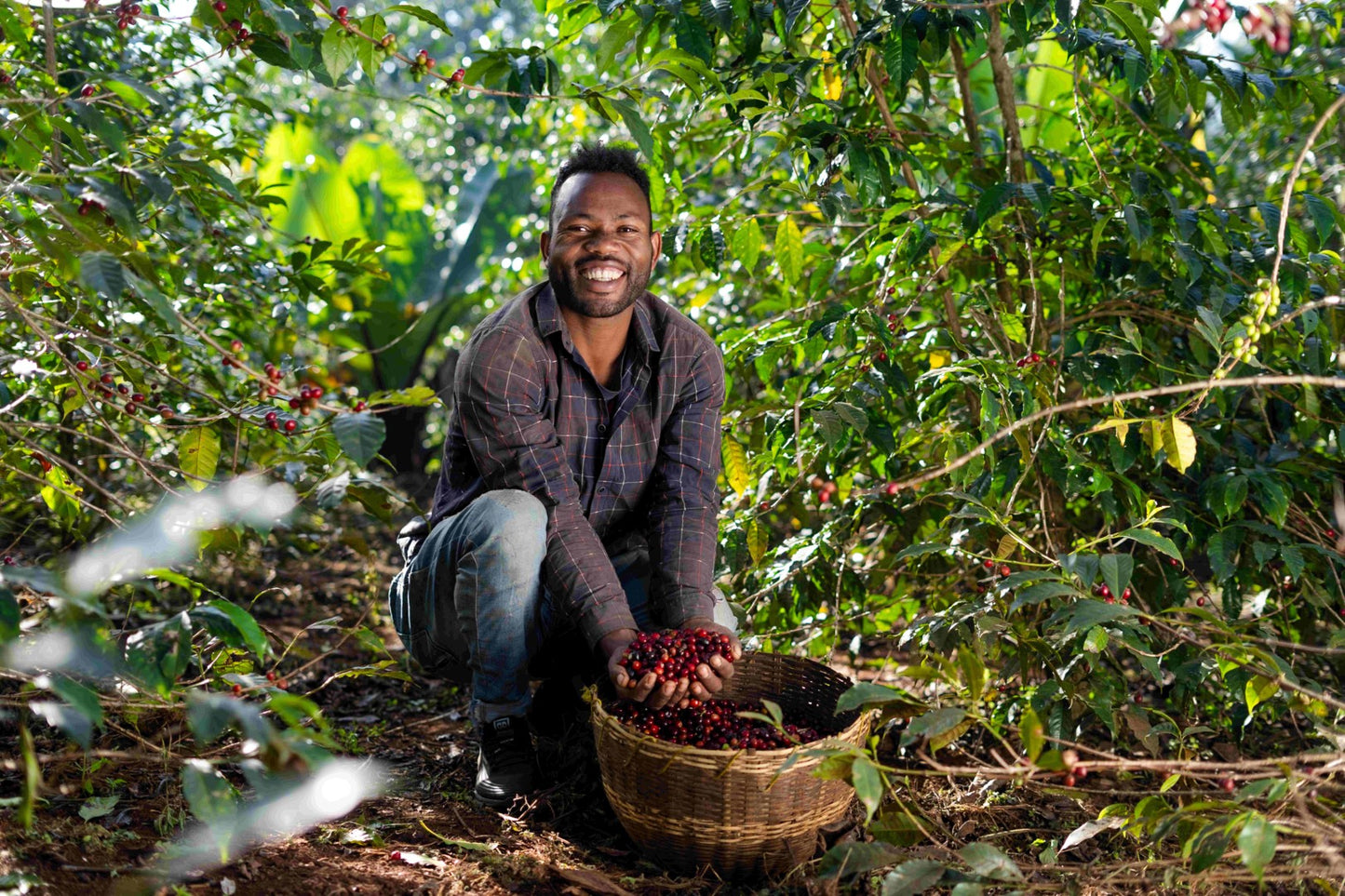
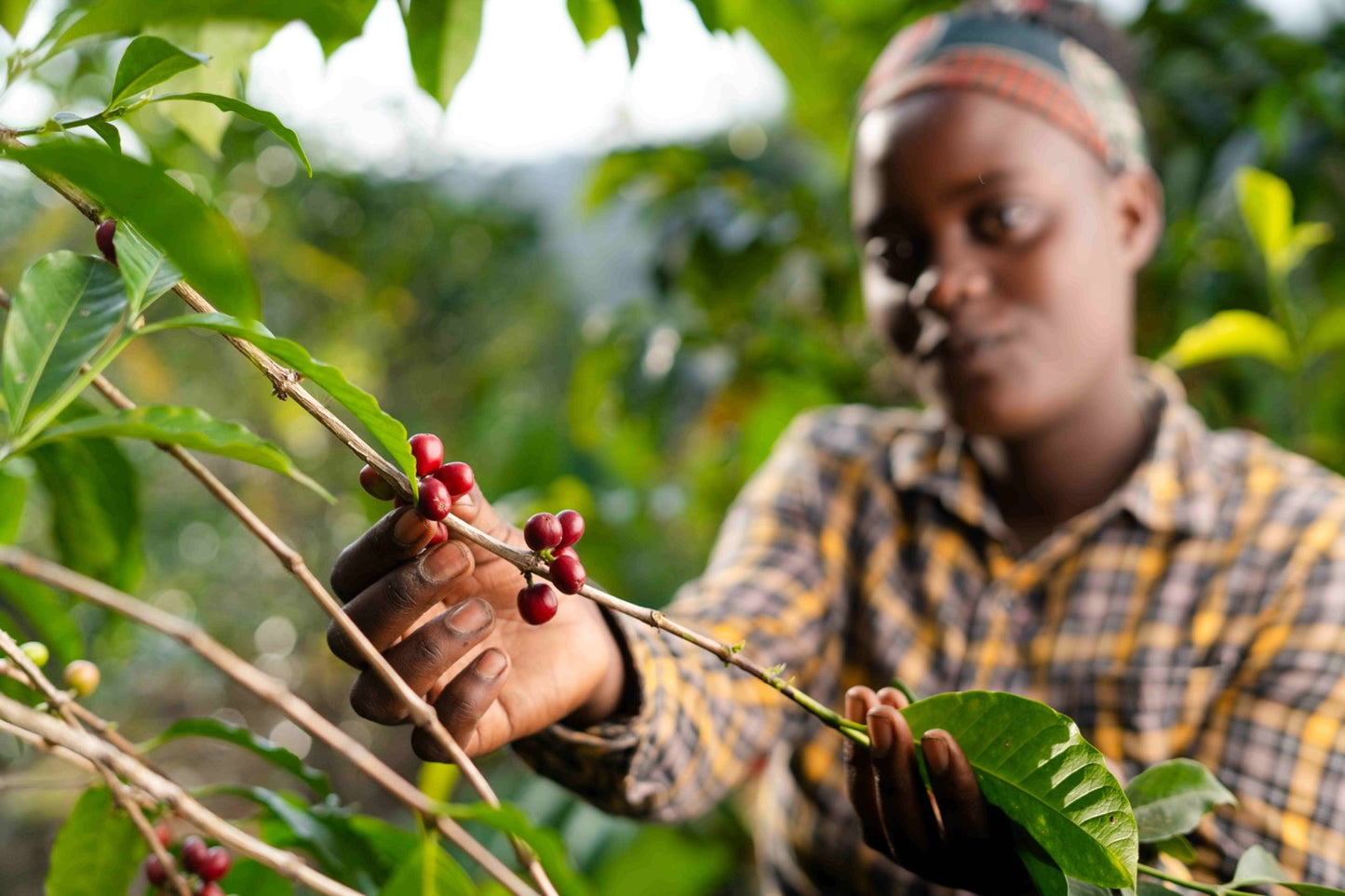
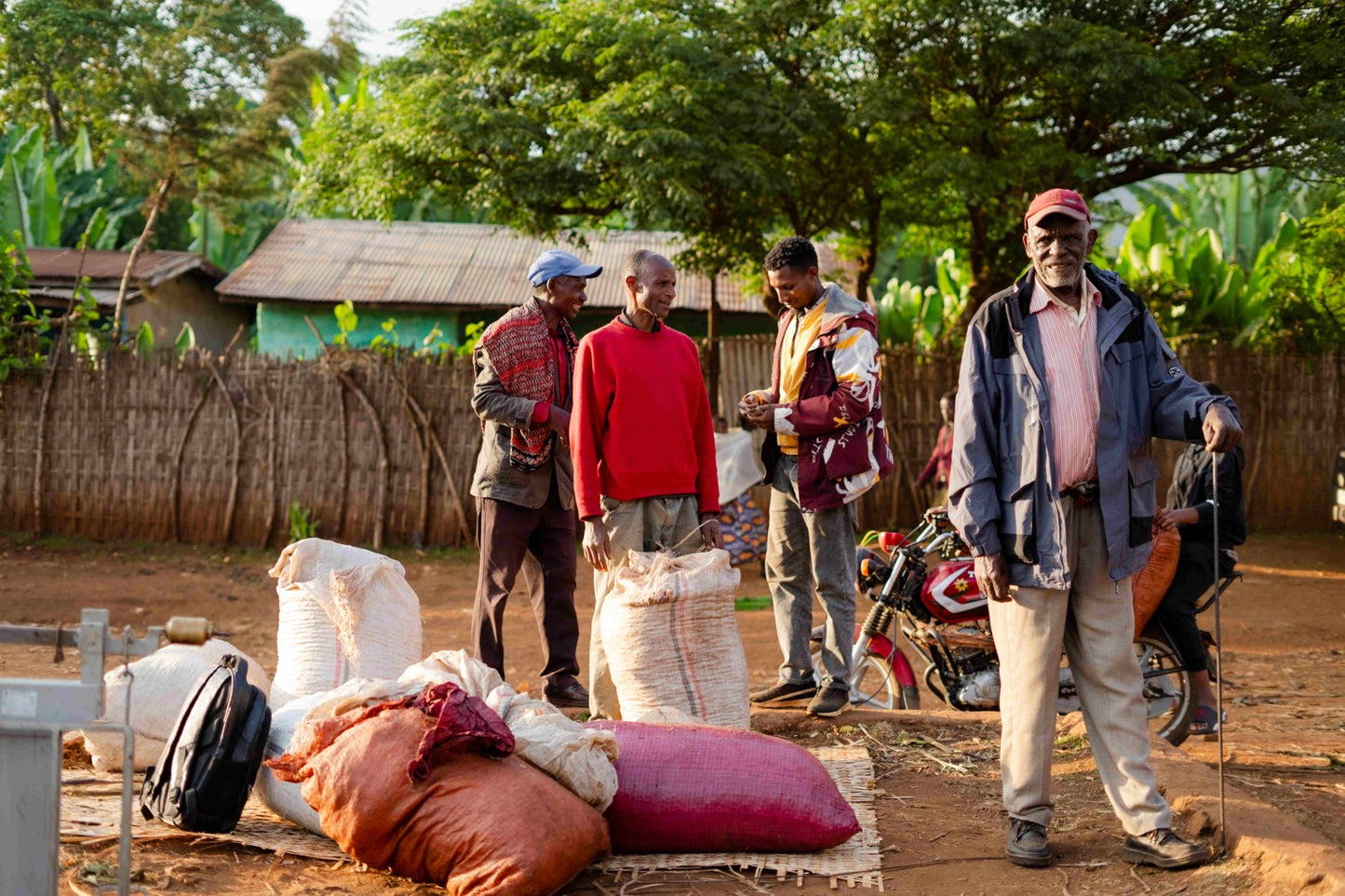
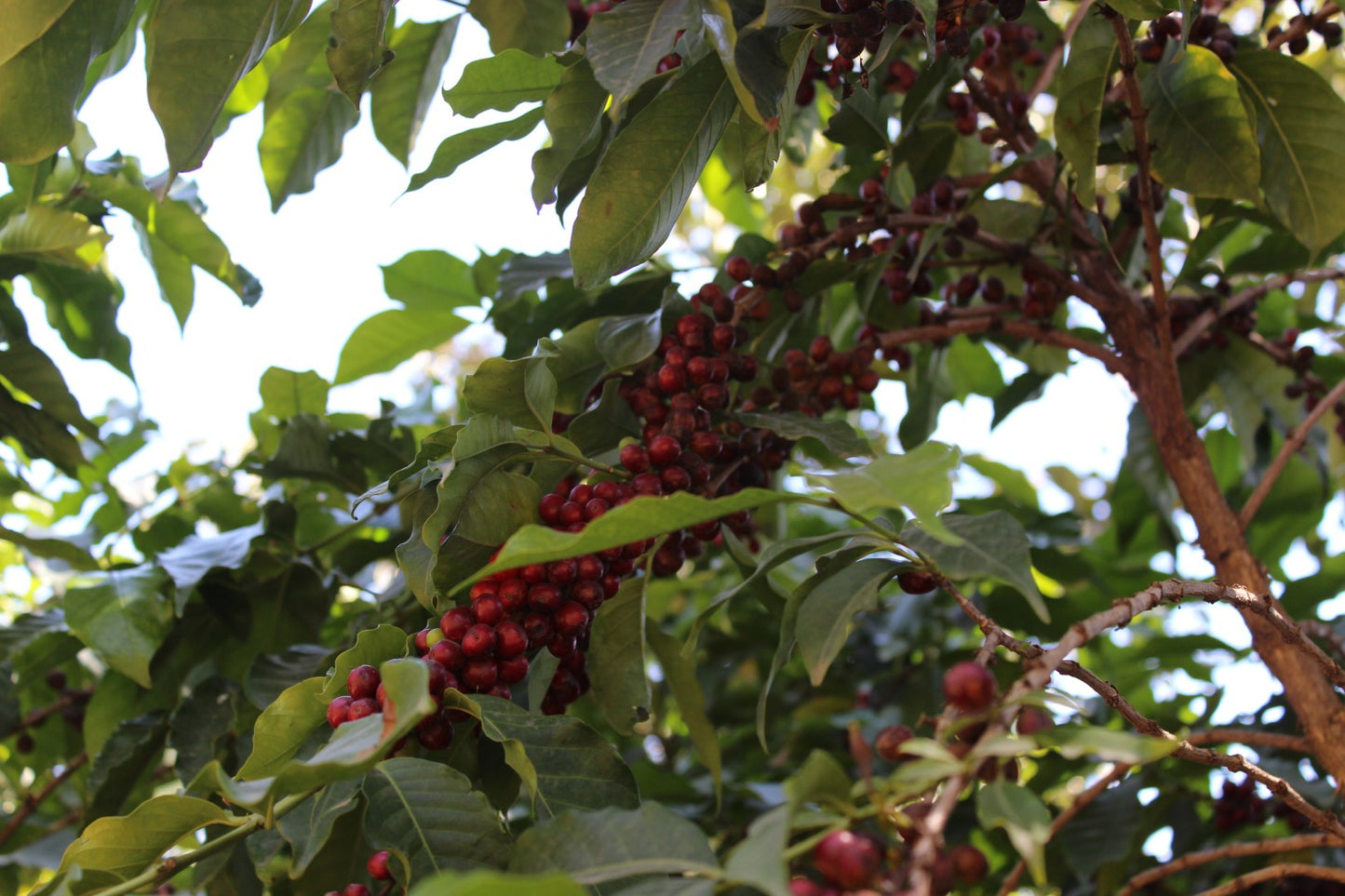
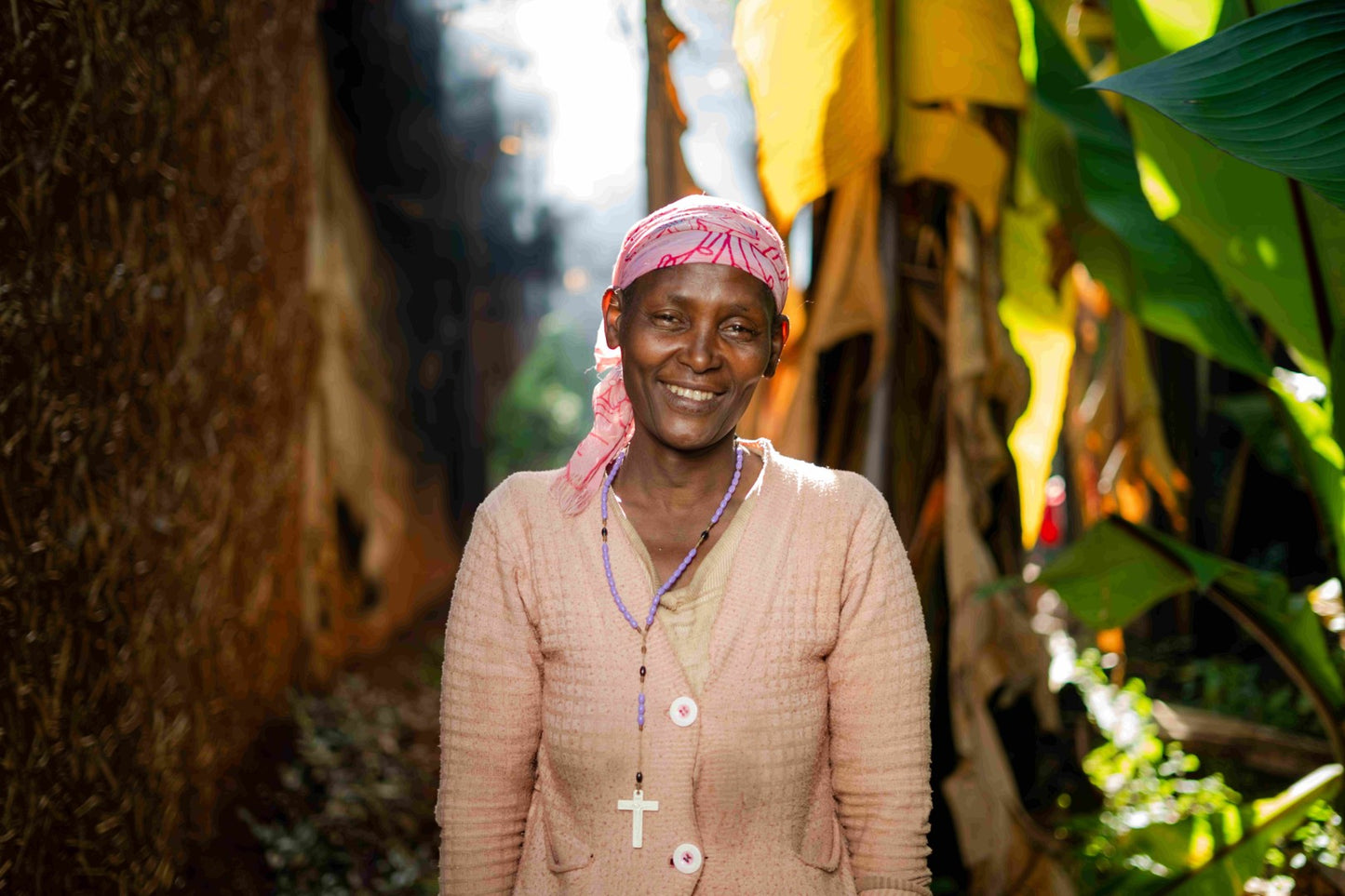
This coffee’s roasted in our espresso style — but that doesn’t mean you need to brew it as espresso. You can make it however you like — espresso, filter, moka pot, AeroPress or whatever you enjoy. We roast it a touch darker than we would a filter roast to caramelise the sugars and bring out smooth chocolatey and nutty flavours that cut beautifully through milk.
When you add milk the natural sweetness, fat and proteins tend to soften acidity and highlight caramelised flavours. That’s why lighter filter roasts can sometimes taste a bit sharp or sour with milk — they’re simply not built for it. Espresso roasts being more developed balance this out. The deeper caramelisation creates toffee and cocoa notes that blend harmoniously with milk’s creaminess while a hint of gentle bitterness adds that satisfying ‘coffee punch’ in your flat white or cappuccino.
If you prefer your coffee black this roast will still give you a full-bodied rich cup with plenty of depth and sweetness. For a lighter fruitier experience you might enjoy exploring our filter range instead.
Origin and Sourcing
?
?
?
Roast Details
?
?
?
?
?
Taste Profile
?
?
Ethiopia | Nigist Girmachew | JARC / Local Landraces Natural Grade 1 - When is peak freshness?
Medium Roast - Roasted on Roest P3000
About Nigist Girmachew
Nigist Girmachew inherited her farm from her late husband and has been managing it since 2022, all while also raising her 7 children. As so many small farms across Ethiopia, she grows local heirloom landraces at a lofty 2,200 meters above sea level. Her three-hectare farm is nestled in the highlands of Ethiopia’s favored Yirgacheffe region, where heirloom varieties thrive at these high elevations under false banana shade trees.
Nigist does not use chemical fertilizers or pesticides on her farm, making her production technically organic. However, as with many producers throughout the country, certification costs are too high to warrant an official Organic seal.
All of Nigist’s coffee is processed using the Natural method, largely due to the fact that she’s a single parent farmer with limited finances and time. She receives a higher price for her coffees selling to our woman-led partner exporter than selling to a local washing station.
Processing Details
Nigist utilizes entirely natural growing practices and cultivates her coffee beneath false banana trees that provide shade and contribute to soil health. Her farm is composed primarily of vertisols (clayey soils that have deep, wide cracks for some time during the year) and luvisols (a fertile soil type, usually with a layer of rich hummus overlaid on clay enriched subsoil). These soils are typical of this part of Ethiopia and are good for growing high quality Arabica at higher elevations, as they allow for deep rooting and a good nutrient reserve.
Alongside coffee, Nigist also grows crops such as avocado, potatoes, collard greens and enset (a member of the banana family and a staple food crop in Ethiopia), which provide both subsistence and income diversification.
Nigist is a member of the Ama Commitment Income Diversification Scheme, a project designed to allow partners to get involved with meaningful on-the-ground change for women in rural Ethiopia. By working directly with farmers, the initiative allows women to earn significantly better prices than they previously received. Nigist receives a 30% upfront payment for her coffee and the remaining balance is paid upon arrival at the Addis Ababa warehouse. The pricing model offers her a better rate than the local market, strengthening financial stability and rewarding quality.
Harvest takes place from November to January, with cherries handpicked by a seasonal team of 25 workers.
Ripe cherries are handpicked at peak maturity and floated to remove quakers before drying. The cherries are dried on raised beds for 12 to 15 days, depending on weather conditions, with regular turning to ensure even drying. Once dried, the coffee is transported to Moplaco in Gerji, Addis Ababa, where it is stored before moving by train to Djibouti for export.
Coffee in Ethiopia
While Ethiopia is famous as coffee’s birthplace, today it remains a specialty coffee industry darling for its incredible variety of flavors. While full traceability has been difficult in recent history, new regulations have made direct purchasing possible. We’re partnering directly with farmers to help them produce top quality specialty lots that are now completely traceable, adding value for farmers and roasters, alike.
The exceptional quality of Ethiopian coffee is due to a combination of factors. The genetic diversity of coffee varieties means that we find a diversity of flavor, even between (or within) farms with similar growing conditions and processing. In addition to varieties, processing methods also contribute to end quality. The final key ingredients for excellent coffee in Ethiopia are the producing traditions that have created the genetic diversity, processing infrastructure and great coffee we enjoy today.
Most producers in Ethiopia are smallholders, and the majority continue to cultivate coffee using traditional methods. As a result, most coffee is grown with no chemical fertilizer or pesticide use. Coffee is almost entirely cultivated, harvested and dried using manual systems.
SKU: eth_nigist_1000g
Package Weight: 1150g
How does my coffee come packaged?
- Choosing a selection results in a full page refresh.
- Opens in a new window.

